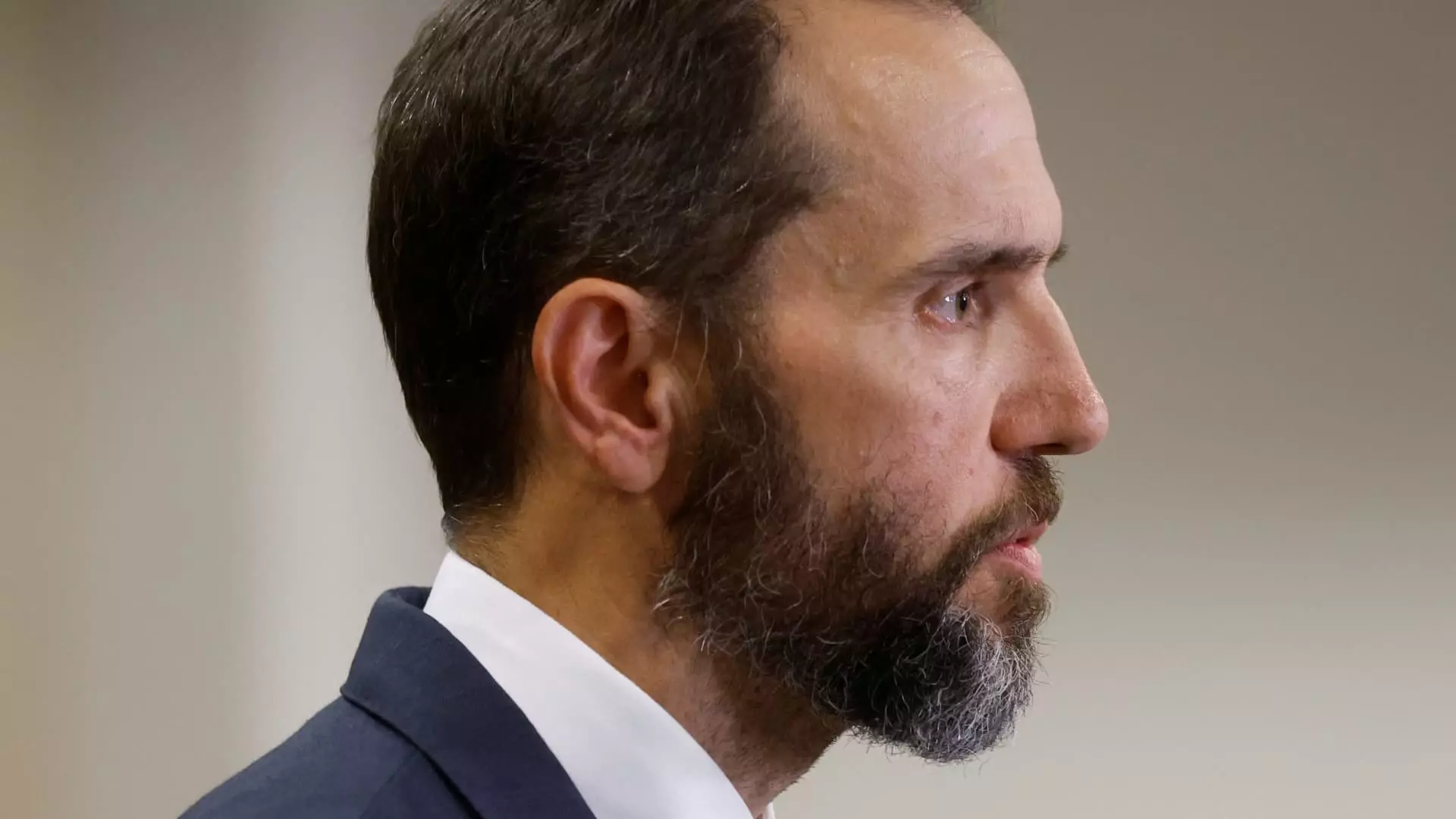On a significant day for U.S. politics, the Justice Department unveiled Special Counsel Jack Smith’s comprehensive report detailing Donald Trump’s efforts to undermine the 2020 presidential election results. This report marks the culmination of approximately two years of legal examination and probes into the actions Trump undertook following his electoral defeat to President Joe Biden. At the heart of the allegations is a four-count indictment accusing Trump of attempting to obstruct the legitimate collection and certification of votes in key battleground states. The sheer gravity of these accusations not only illuminates Trump’s potential legal peril but also provides a crucial historical account of this divisive period in American democracy.
The report’s findings are pivotal, indicating further accusations against Trump for allegedly hoarding sensitive national security documents post-presidency. This section of the investigation, presently withheld from public scrutiny due to ongoing legal actions against two of Trump’s associates, reflects a growing concern over the handling of classified materials in a post-White House environment. As this legal narrative unfolds, the implications of Trump’s actions transcend individual accountability, raising broader questions about governmental integrity and the rule of law.
On a procedural note, it’s important to recognize that the legal discourse surrounding Trump has been reshaped by his electoral win in November. Following his victory, Jack Smith faced limitations under the longstanding Justice Department policy that advises against prosecuting sitting presidents. The complex interplay of legal precedent and political maneuvering has, until now, shielded Trump from immediate repercussions, illustrating a unique and often contentious relationship between American jurisprudence and political office.
The contentious nature of the probe is underscored by Trump’s persistent critique of Smith, whom he has labeled as “deranged.” This rhetoric is characteristic of Trump’s approach, framing legal actions against him as coordinated, politically charged attacks aimed at crippling his current and future political ambitions. This narrative has resonated strongly with his base, who view his legal challenges as not merely personal but as an assault on the broader political movement he represents.
Despite Trump’s efforts to impede the report’s release, culminating in legal battles that sought to keep the report hidden until after his upcoming return to office, the judicial responses have consistently favored transparency. U.S. District Judge Aileen Cannon’s recent ruling illustrates the judiciary’s role in balancing accountability with political considerations, emphasizing that the importance of public access to these findings must be prioritized.
While the court has temporarily paused some aspects of the report’s dissemination, the preceding investigations and congressional accounts present a comprehensive narrative of the events leading up to the January 6 Capitol riots. The bipartisan efforts to depict Trump’s actions post-election resonate as a profound warning regarding the fragility of democratic institutions. The collective evidence indicates a systematic attempt by Trump to overturn a legitimate electoral outcome through disinformation and coercion, jeopardizing the fundamental principles upon which the United States was founded.
Ultimately, as the nation continues to grapple with the implications of this report, it serves as a stark reminder of the importance of accountability in governance. The legal challenges facing Donald Trump are emblematic of a larger struggle within American democracy, seeking to reconcile the ambitions of political leaders with the expectations of the electorate. The unfolding narrative will likely shape the future of political discourse, governance, and public trust in the years to come.


Leave a Reply